The Persian cat is one of the most popular cat breeds in the world known for its gentle, affectionate, laid-back, and sweet personality. Persian cats are often seen as symbols of luxury and sophistication. They are popular pets for celebrities and royalty.
The Persian cat originated in Persia, now Iran, and was brought to Europe in the 16th century. They were first brought to America in the early 1800s and became popular in the 19th century. Persian cats were first shown in cat shows in the United States in the 1870s.
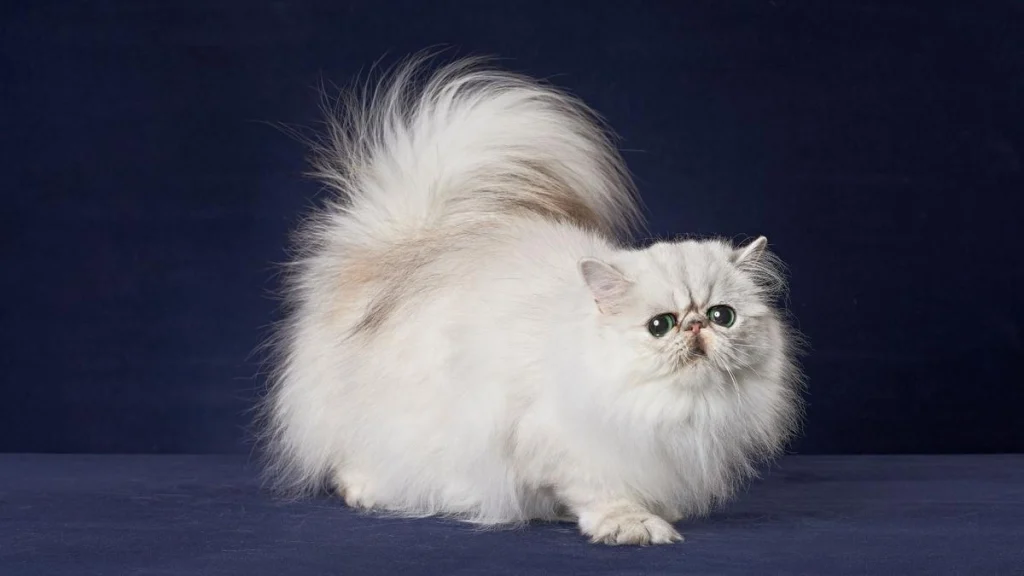
Persian Cat Appearance
The Persian cat is medium-sized, typically weighing between 7 and 12 pounds.
In detail, the Weight of Female cats is 7-10 pounds, and the Weight of Male cats is 9-13 pounds.
Lifespan: 10-15 years.
Height: 10-15 inches tall.
Coat: A Persian cat’s coat can be long, thick, and silky with an undercoat and a topcoat.
Colors: Persian cats come in a variety of colors and patterns, including solid colors, tabbies, bi-colors, and particulars.
Body: Sturdy and well-proportioned, with a short neck and thick legs.
Head: Round and broad, with a short muzzle and large, round eyes.
Ears: Small and rounded, set far apart on the head.
Eye color: Blue, green, copper, or hazel.
Personality: Gentle, affectionate, and laid-back.
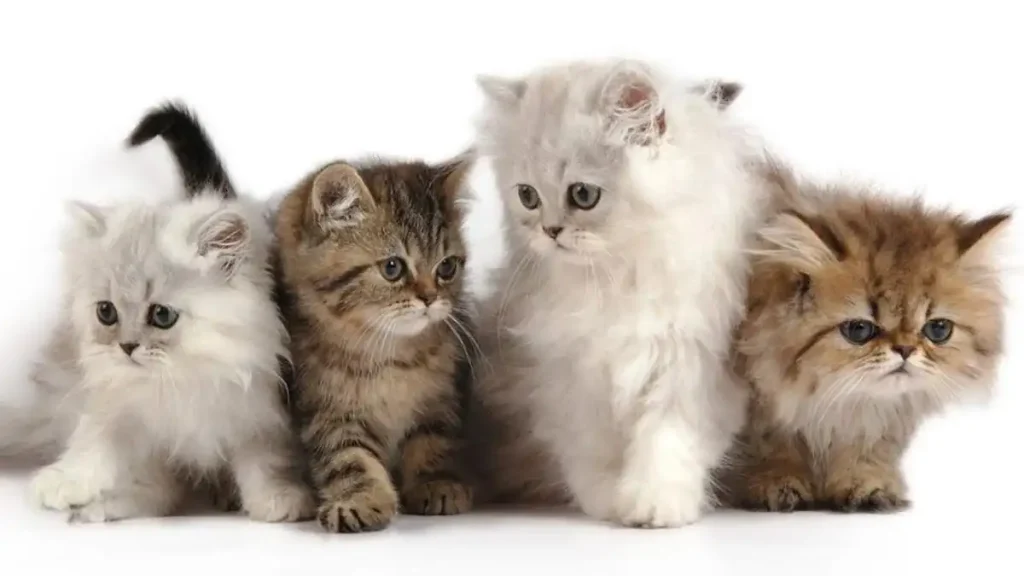
Different variations of the Persian Cat breed:
◼️ The Himalayan Persian
◼️ The Exotic Shorthair
◼️ The Colorpoint Shorthair
Persian Cat Personality, Health & Care:
Temperament: Persian cats are Docile and quiet in nature and good pets for families with children or other pets. They bond closely with their owners and enjoy spending time with them which is a valid reason for making them a good choice for first-time cat owners.
Health: Generally healthy cats, but they are prone to some health problems, such as:
Eye problems, Breathing problems, Dental problems, Skin problems, Respiratory problems, etc.
Training: Persian cats are generally gentle and laid-back cats, but they can also be very playful and affectionate. They are relatively easy to train, but it is important to be patient and consistent. With patience and consistency, one can train a Persian cat to perform a variety of commands like- Stay, Come, Down, and rollover.
Grooming: Persian cat Requires regular grooming to prevent matting and tangles. They should be brushed at least once a day, and more often during the shedding season. They may also need to be bathed occasionally, but not regularly.
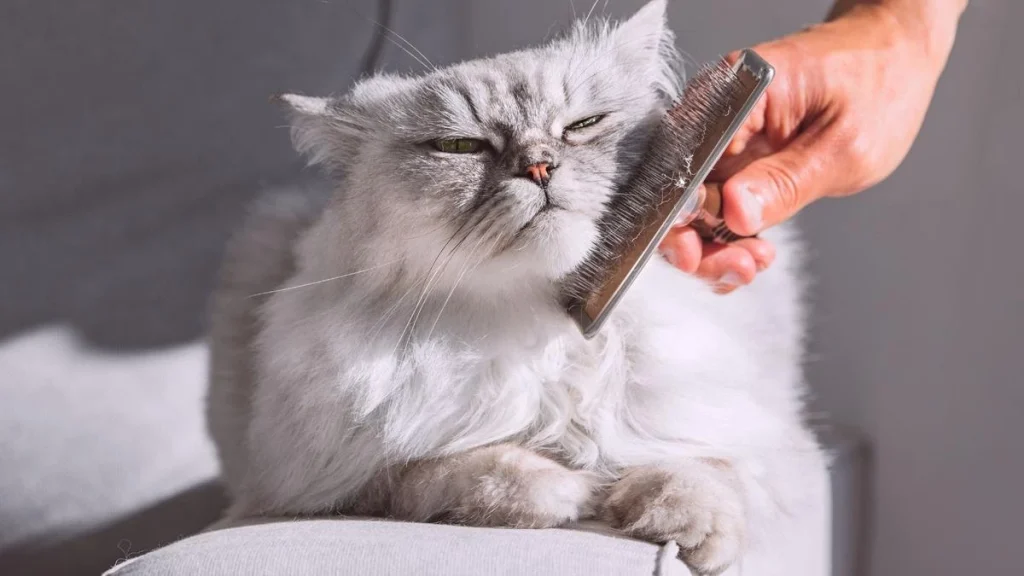
Persian Cat Lifespan
Persian cats have an average lifespan like other cats which can be 10-15 years. However, some Persian cats have been known to live for up to 20 years. The lifespan of a Persian cat can be affected by several factors, including genetics, diet, environment, and over health.
Persian Cat Price & Overall Annual Spending
The price of a Persian cat can vary depending on several factors, including the cat’s age, breed, pedigree, and health. In general, Persian cats can range in price from $500 to $2,000 or more. Some high-quality Persian cats with rare bloodlines can sell for over $10,000.
The average annual spending by the owner for a Persian cat is $1000 to $1200, of which-
Food and Treat: $300
Vet care: $500
Grooming and Training: $300
Other expenses: $200
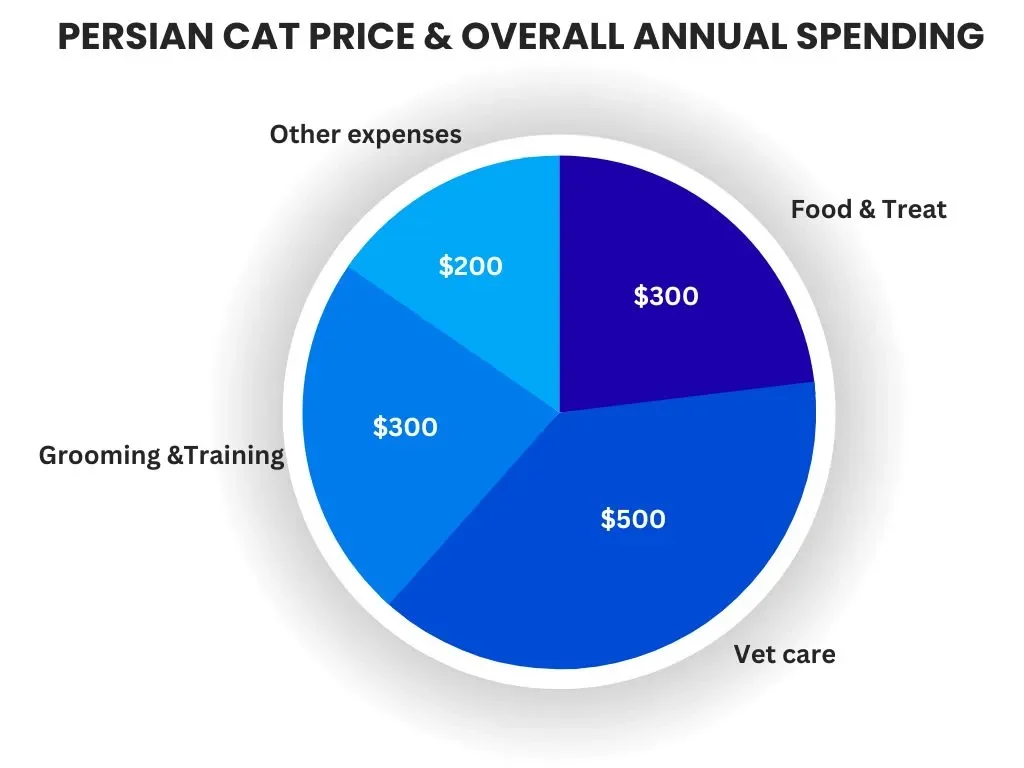
Persian Cat Food
Some of the things to look for in good food for Persian cats:
High protein content: Cats need to eat good food that will have a high protein content ideally between 30% and 40%.
Low carbohydrates: A good cat food will have a low carbohydrate content, ideally no more than 20%.
Omega-3 fatty acids: A good food will contain omega-3 fatty acids, such as those found in fish oil for maintaining a healthy coat and skin of Cats.
Fiber: Fiber helps to keep the digestive system healthy and can help to prevent hairballs.
Vitamins and minerals: Cats need a variety of vitamins and minerals including taurine, vitamin A, vitamin D, and calcium to stay healthy.
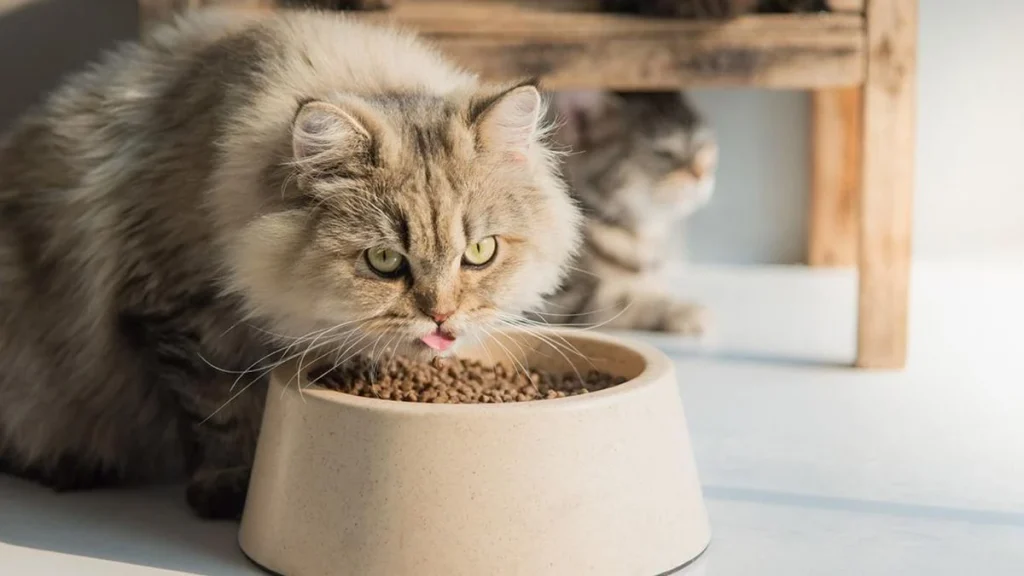
Some safe foods that can be included in a Persian cat’s diet:
Lean meats such as chicken, turkey, and fish, Boiled Eggs, Dairy products such as yogurt and cottage cheese, Whole grains such as brown rice and quinoa, Vegetables such as carrots, broccoli, and spinach, Fruits such as apples, bananas, and blueberries
Avoidable food for Persian cats:
Raw meat, Grapes and raisins, Chocolate, Xylitol, Fatty foods, Spicy foods
Pros and Cons
✅ Pros:
🔹 Gentle and affectionate
🔹 Low-maintenance
🔹 Variety of colors and patterns
🔹 Long lifespan
❌ Cons:
🔹 Requires regular grooming
🔹 Can be expensive
🔹 Prone to certain health problems
🔹 Not suitable for families with young children
Persian Fun Facts
Persian cats are the official cats of Iran.
Persian cats were a favorite of Queen Victoria.
Persian cats were often depicted in Renaissance paintings.
Persian cats are known for their love of food and they are prone to overeating.
The world’s oldest cat was a Persian cat named Creme Puff, who lived to be 38 years old.
Persian cats are also known for their love of sleep and they can sleep for up to 18 hours a day.
The most expensive cats ever sold was a Persian cat named Snowbell, who was sold for $53,200.
Persian cats are one of the oldest (originated almost 1000 years ago) most popular cat breeds in the world.
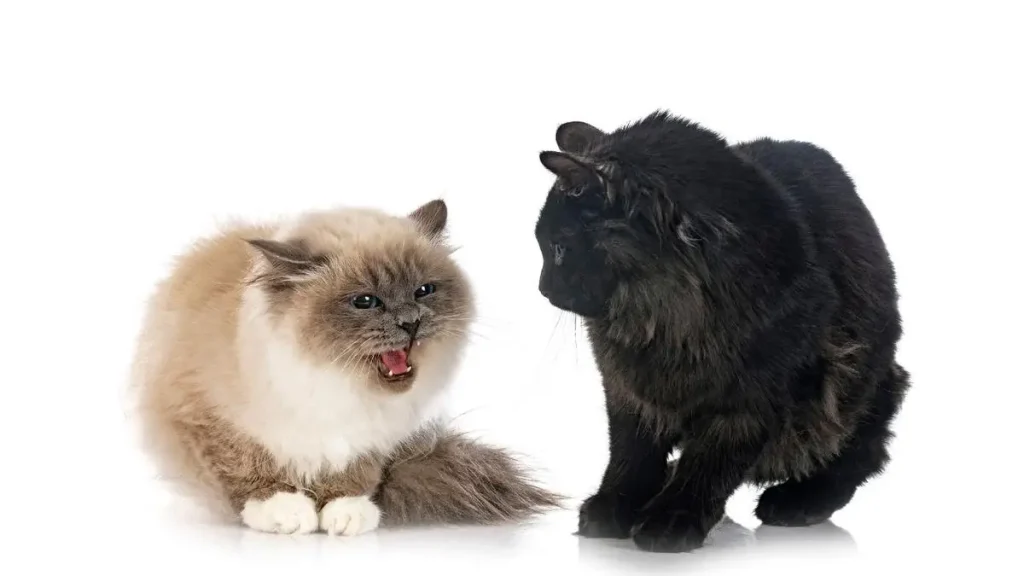
Persian Cat in America
Persians are one of the most popular and expensive cat breeds in America with an estimated number of 3.5 million.
The top 5 states with the highest number of Persian cats in America: Are California, Texas, Florida, New York, Pennsylvania
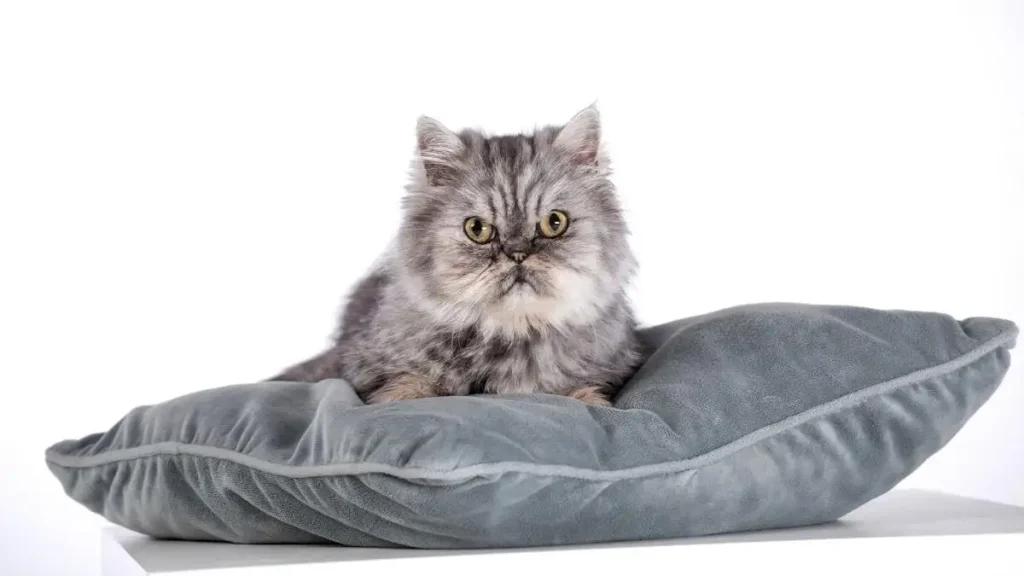
Overall, Persian cats are beautiful and loving creatures that make great pets for the right people who are looking for a calm and affectionate cat that does not require a lot of exercise.
Hope You All Love This Blog Post. Please Leave Feedback In the Comment Section And More Information About Pets Then Please Visit Happy Hungry Pets.

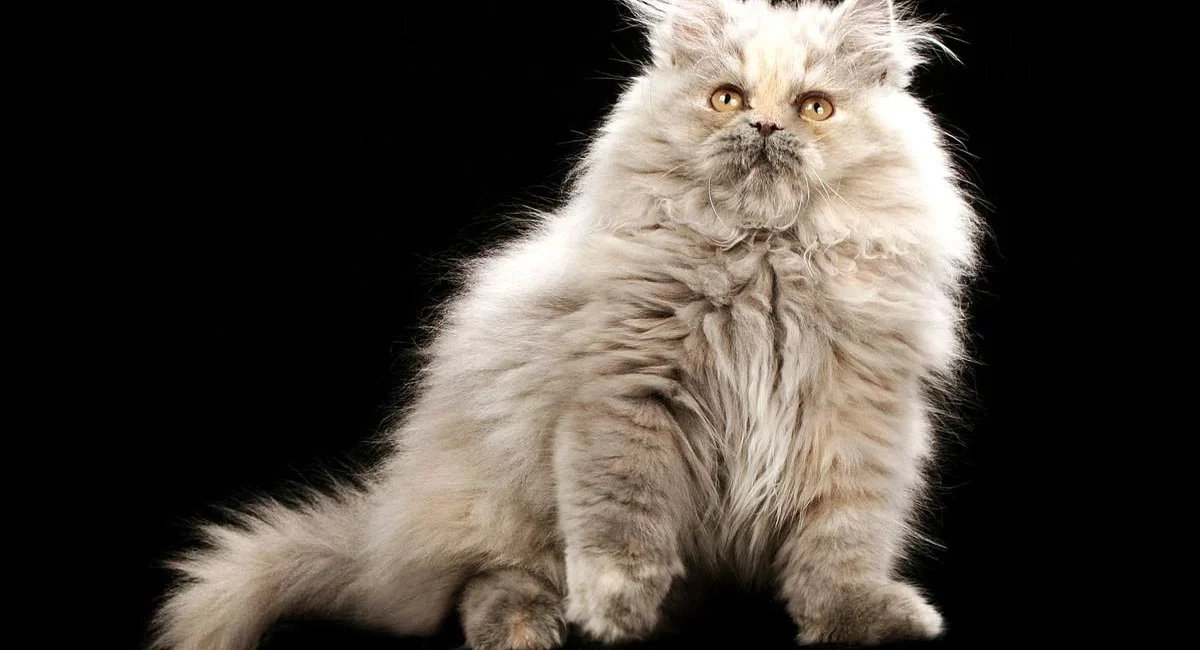

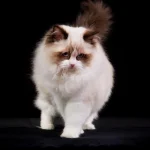
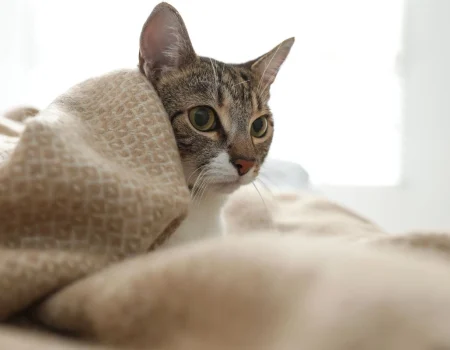
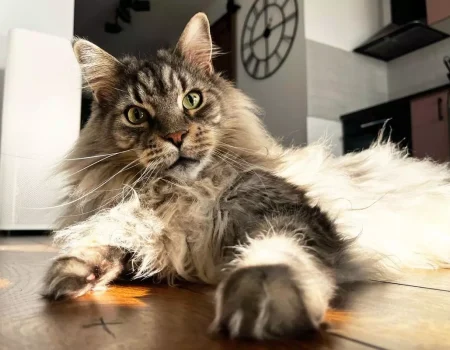
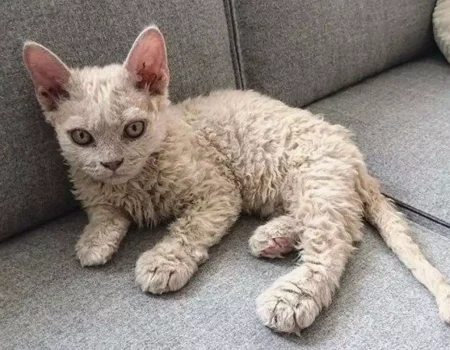
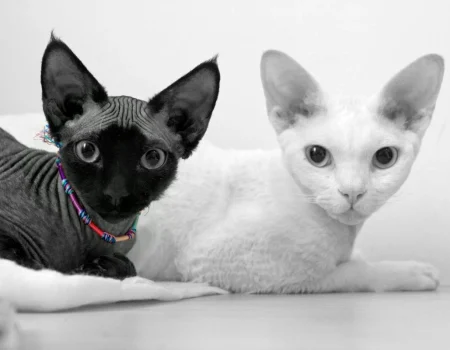
No Comment! Be the first one.